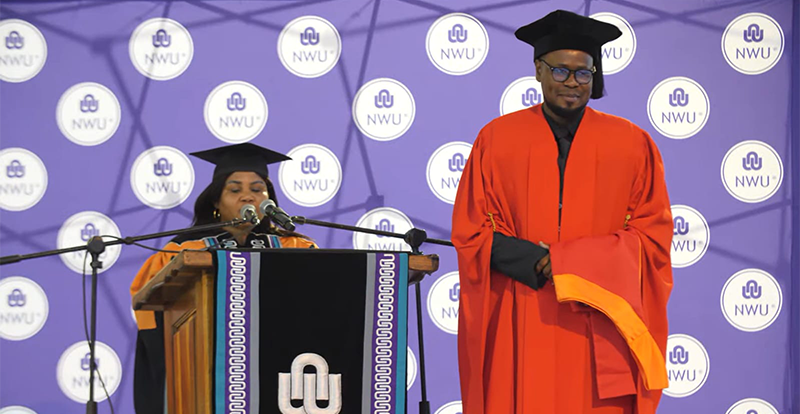South Africa, Lesotho and Eswatini need to work towards stabilising their political environments and improving governance to create a better climate for business and trade.
“Political stability is crucial for trade,” says Dr Mpho Lenoke, recent PhD graduate and a lecturer in the subject group Economics at the North-West University (NWU). “When governments prioritise stability, they make room for economic growth.”
He set out to understand how political conditions shape trade in southern Africa in a study titled “An econometric approach of a country’s political state on trade openness in South African Customs Union countries”.
“In South Africa, political stability seems to encourage more trade activities, while in Lesotho and Eswatini, political turbulence appeared to hold back economic exchange,” Dr Lenoke said.
For his analysis, which used data from 1996 to 2022, he employed advanced econometric models, including the autoregressive distributed lag (ARDL) and panel-ARDL methods.
“In Lesotho and Eswatini, political challenges are linked to less openness to trade,” he said.
In contrast, political stability in South Africa was directly correlated with trade openness.
The study also highlighted the roles of inflation and population in influencing trade patterns across the three nations. In South Africa, for example, stable governance and inflation control were found to support trade growth.
Dr Lenoke’s findings point to a path forward for southern Africa: strengthen political institutions, align economic policies and boost cooperation within the region. For policymakers, his study serves as a reminder that political stability is not just about governance; it is a foundation for economic progress.

Dr Mpho Lenoke recently graduated with a PhD in economics.
